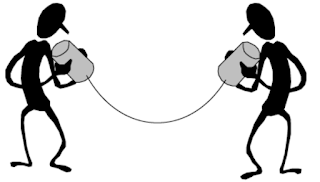I remember my favorite breakfast.
My daughter, Nina, sat in the passenger seat,
and we ate as I drove. We had a shiny black town car that the rental company
had, by luck, upgraded from the simple sedan I had ordered. Before we left the
parking lot, that luxurious vehicle had told me three times that I was too
close to another car or a wall. Don’t you hate it when a car bosses you?
We had flown to Los Angeles, gone to
Disneyland, then driven to San Diego to visit Sea World. We were driving back
to L.A.
We waited until 11 a.m. that morning until
Point Loma Sea Food take out or eat in restaurant opened.
We had lunch there many times when we lived in
San Diego. We would sit outside in the sunshine with seagulls begging overhead
and sea lions barking in the harbor. Although I had many lunches there, I had
never ordered breakfast before.
I ordered my favorite, a crab sandwich.
“I’m in heaven,” I sang as we barreled up I-5.
I’ve tried other crab sandwiches from other restaurants, but none comes close
to Point Loma’s. It’s a simple sandwich, crab meat with tartar sauce (I get
extra) on sourdough bread. That’s it. Iced tea and lemon completed the meal. It
makes my mouth water just thinking about it.
I could have called this chapter #Memoir,
for that's what I’m talking about. I could have called the Avocados chapter
“What to Write About,” But being a little obtuse can work once in a
while.
“I remember” is an excellent place to start.
You don’t have to wait until you’re old to
write a memoir. Write one at 20, 30, 40-80, 90, and beyond.
Memoir used to be an old-folks genre, but not
anymore. I was once told that nobody will read your memoir unless you are
somebody famous like Shirley MacLaine. It’s different now. You can write many
memoirs during your life. Do not begin with, “I was born”—you know the story,
schooled, married, children. No, a memoir is that stop alongside the road to
strip off your suit and bathe in that swimming hole you glimpsed as you almost
drove by.
It’s those events that stop the clock.
And remember, when you tell of events, it is
living them all over again. If you end up crying, just wipe your nose with a
Kleenex and keep the pen moving.
This is your life. Make it a good one. If it
was a bad one, you could write of that too. But whining—I’d suggest that is for
your eyes only.
Traditional wisdom—Oh Lord, traditional wisdom
has gotten us into more trouble than Timmy’s escapades on the Lassie show.
Okay, here is traditional wisdom: “Without conflict, you have no
story.”
Oh, how I’ve struggled with that axion.
Conflict. The very thing we are trying to heal in our lives, we are called upon
to write on paper. Some writers create such horrible events that when I read or
see it, I think, “Do not put this into the world’s consciousness.”
I know, I have trouble throwing rocks at my
heroes.
What about boy meets girl, boy loses girl, boy
wins girl? Doesn’t that present challenges and tell us we need to work for what
we want?
Challenge. Yep, we all like challenges.
Otherwise, we would sit around with our fingers up our noses, get fat, and wear
out the couch. I tend to shy away from bad guys and wars as challenges and
instead face life, which has challenges enough without having to fabricate
them. I like adventure, which holds the possibility of having all hell break
loose. If your adventure is sublime, it’s a vacation.
We have how-to books on plumbing, golf,
self-examination, and enlightenment. Even those have an element of story.
I looked online at the ten most famous memoirs
of today and found exquisite writing but talk about angst. It was there. I was
envious of their turn of the pen, but not their troublesome life. I hope their
writing served to heal their wounds.
What if we write through the horror then leave
it behind like footsteps in the snow?
By writing our lives’ events, we CAN come out
the other side knowing we are strong, capable, and creative creatures.
Remember, old Zig Zigler said, “It’s
your attitude, not your aptitude, that determines your altitude.”
Well, well, I tried to show you a minute video, Pebbles in the Pond, but this site had other ideas. It's a moment of calm, and pretty too. The reflection in the water was so perfect we had to throw stones into the pond to show you the water was real.
You can find it on https://www.youtube.com/JoyceDavis0001/videos
I would love it if you subscribed to my videos.
Or better yet, purchase a book--look what came yesterday:
A
proof of my book, the girl on the Pier. the stripe across the title is to make
sure I don't sell it. I approved it, the spine is in the right place, no
unnecessary blank pages. I chose a misty, foggy cover for it is a bit of a
mystery.
The first mystery is that a customer offers two million dollars for the painting The Girl on the Pier.
The second mystery is that when he views it, he says, "But that's not the painting, there is another."






